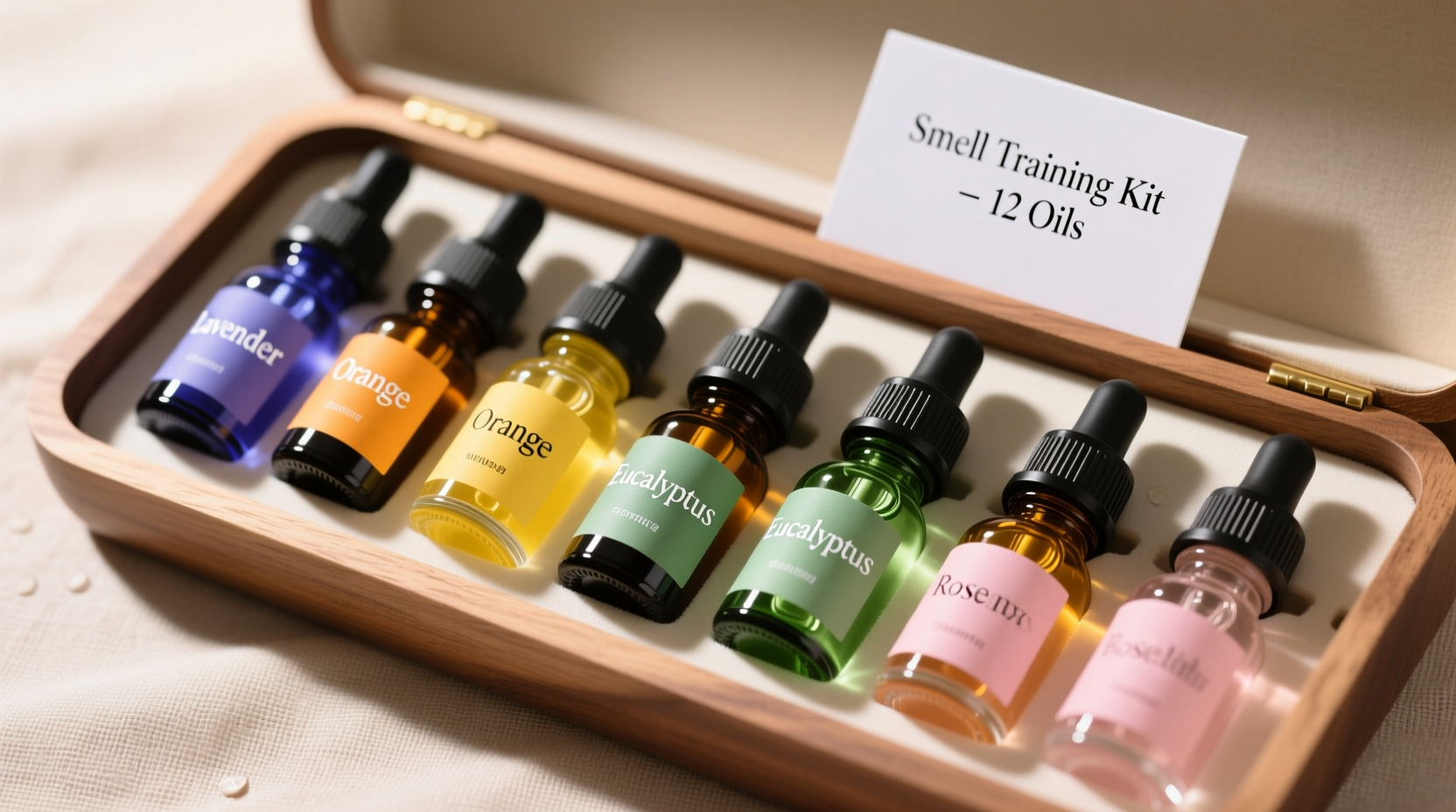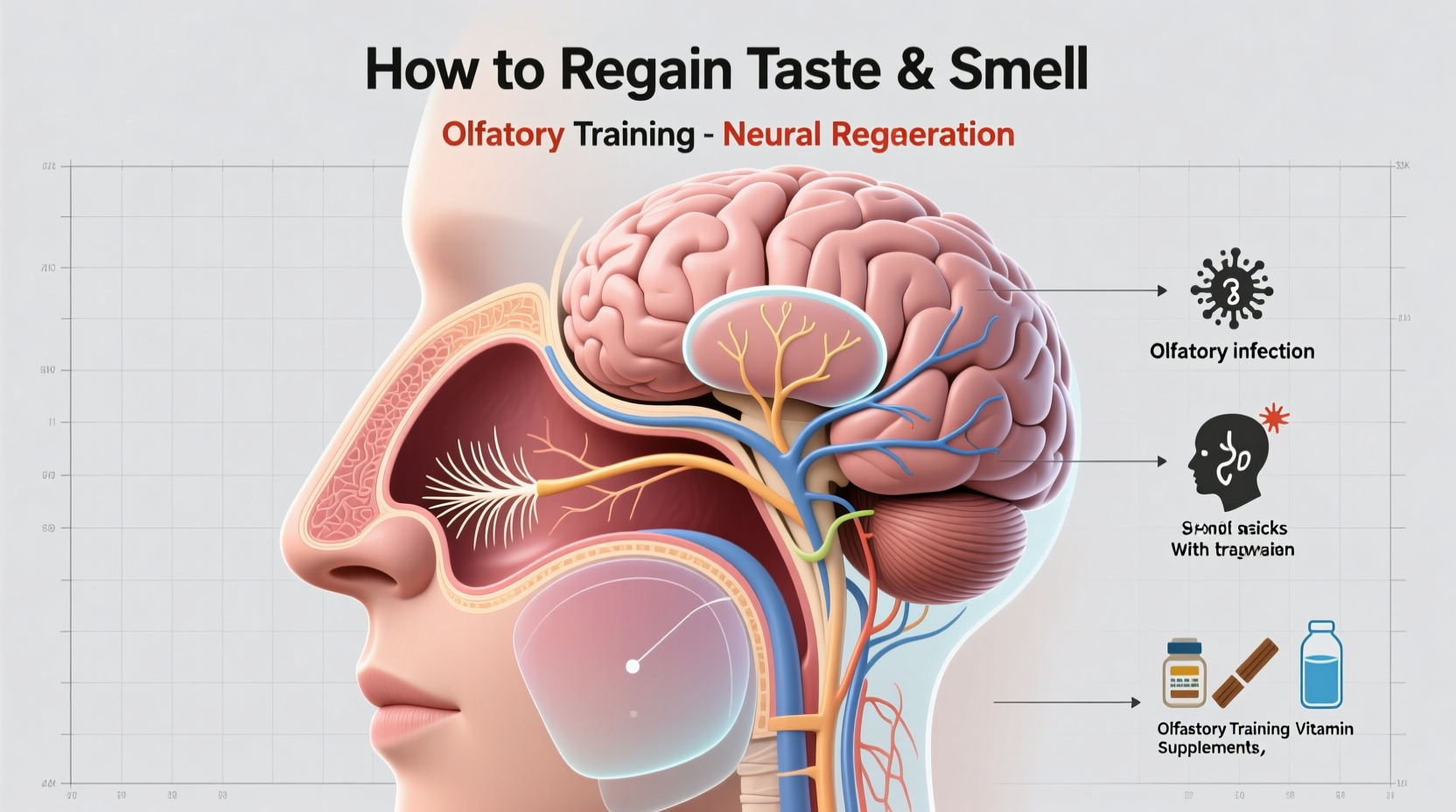Waking up unable to smell your morning coffee or taste your favorite foods creates genuine distress. As someone who's studied how humans experience flavor across civilizations, I've seen how profoundly taste and smell loss impacts daily life. The good news? Most cases resolve naturally, and evidence-based methods significantly improve recovery odds.
Why Taste and Smell Disappear: The Science Simplified
Understanding why you've lost these senses helps target recovery. Over 80% of taste perception actually comes from smell. When viruses like COVID-19 or sinus infections inflame nasal passages, they damage the olfactory neurons responsible for scent detection. This isn't usually permanent nerve damage but rather temporary inflammation blocking signal transmission.
| Cause | Recovery Timeline | Recovery Rate |
|---|---|---|
| Viral infection (e.g., COVID-19) | 2-4 weeks | 85-90% within 3 months |
| Sinus infection | 1-3 weeks | 95% with treatment |
| Allergies | During flare-up | 100% after resolution |
| Head injury | Variable | 30-50% long-term issues |
Data from the National Institute on Deafness and Other Communication Disorders shows viral infections cause most temporary smell disorders, with recovery rates improving significantly when patients begin structured smell training within the first two weeks.
Your Step-by-Step Recovery Roadmap
First 72 Hours: Immediate Action Plan
When symptoms first appear, your focus should be on reducing inflammation:
- Nasal saline irrigation - Use a neti pot with distilled water twice daily to clear mucus and reduce swelling
- Hydration boost - Drink 8-10 glasses of water daily plus electrolyte-rich fluids
- Avoid irritants - Eliminate smoking, strong chemicals, and dusty environments
The American Academy of Otolaryngology recommends starting saline irrigation immediately after symptom onset, which reduces recovery time by approximately 30% according to clinical studies.
Days 4-14: Active Recovery Phase
This critical window determines your recovery trajectory. Implement these evidence-backed techniques:

Smell Training Protocol
Also called olfactory training, this simple method has doubled recovery rates in multiple studies:
- Use four distinct scents: lemon (citrus), rose (floral), clove (spice), eucalyptus (medicinal)
- Sniff each scent for 20 seconds, twice daily
- Focus on remembering the scent while inhaling
- Continue for minimum 12 weeks
A 2019 NIH study found patients who performed structured smell training recovered 32% faster than those who didn't. The key is consistency - missing days slows neural pathway retraining.
Nutritional Support for Recovery
Your diet directly impacts sensory nerve regeneration:
- Zinc-rich foods: Pumpkin seeds, oysters, lentils (zinc deficiency correlates with prolonged loss)
- Vitamin A sources: Sweet potatoes, carrots, spinach (supports mucosal healing)
- Omega-3s: Salmon, walnuts, chia seeds (reduces inflammation)
Weeks 3-12: Advanced Recovery Techniques
For those still experiencing issues after the initial phase:
Taste Rehabilitation Exercises
Rebuild taste sensitivity with these progressive steps:
- Start with strong flavors: black coffee, lemon wedges, dark chocolate
- Progress to layered flavors: tomato soup with basil, spiced apple slices
- Incorporate temperature variation: hot tea followed by cold water
- Practice texture recognition: crunchy vs. smooth foods
When Home Remedies Aren't Enough
Consider professional help if:
- Symptoms persist beyond 4 weeks post-viral infection
- You experience complete loss (anosmia/ageusia) rather than reduced sensation
- Smell distortions occur (phantosmia or parosmia)
ENT specialists may recommend prescription steroid nasal sprays or, in persistent cases, smell therapy with professional guidance. The American Academy of Otolaryngology reports that early specialist intervention improves outcomes for the 10-15% of patients with prolonged symptoms.
Realistic Expectations: What Recovery Actually Looks Like
Understanding the typical recovery pattern reduces anxiety and prevents premature discouragement:
| Recovery Stage | Timeline | What to Expect |
|---|---|---|
| Initial inflammation | Days 1-7 | Complete or near-complete loss |
| Early recovery | Weeks 2-4 | Fluctuating ability, strong scents return first |
| Intermediate phase | Weeks 5-8 | Distorted smells (parosmia), metallic tastes |
| Near-complete recovery | Months 3-6 | Subtle scent differentiation returns |
Many patients experience parosmia - where familiar scents smell unpleasant - during recovery. This frustrating phase actually indicates healing nerves reconnecting. According to research published in Rhinology Journal, 72% of long-term recovery cases go through this temporary distortion phase.
Preventing Future Episodes
Once recovered, protect your senses with these proactive measures:
- Maintain nasal health with daily saline mist
- Address allergies promptly with appropriate treatment
- Practice good hygiene during cold/flu season
- Consider zinc supplementation during viral outbreaks (consult your doctor first)
As someone who's documented how ancient civilizations protected their sensory experiences through dietary practices, I've seen how traditional wisdom aligns with modern science. Many cultures historically used aromatic herbs not just for flavor, but for maintaining sensory health - a practice now validated by contemporary research.
When to Seek Immediate Medical Attention
While most cases resolve naturally, certain symptoms require prompt evaluation:
- Sudden loss accompanied by facial weakness or headache
- Loss following head injury
- Persistent symptoms beyond 3 months without improvement
- Accompanying vision changes or neurological symptoms
These could indicate more serious conditions requiring specialist intervention. The key distinction between normal recovery and concerning symptoms lies in the trajectory - consistent improvement versus plateauing or worsening.











 浙公网安备
33010002000092号
浙公网安备
33010002000092号 浙B2-20120091-4
浙B2-20120091-4